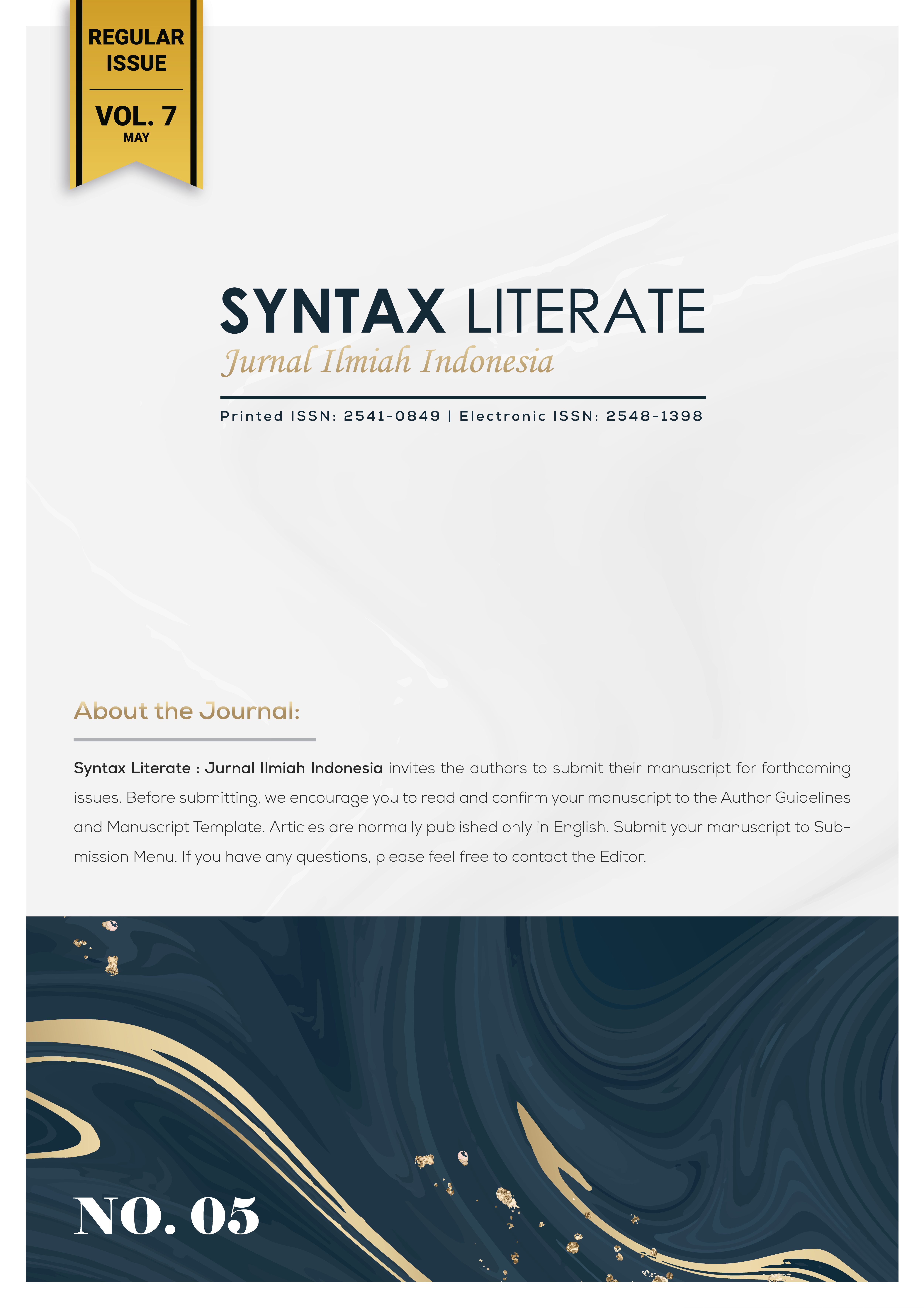The Konsep Fikih Otoritatif dalam Pendekatan Hermeneutika Khaled Abou El Fadl
Abstract
This article discusses about Abou El Fadls hermeneutic thought which responses to the spreading of otoritarianism fatwa in America and Kingdom of Saudi Arabia. This research is a normative juridical research using a conceptual approach from the thoughts of Khaled Abou El Fadl who criticizes fatwas that discredit women's gender rights and biases under the pretext of saying that this is God's will. The results of this study illustrate that the Hermeneutics offered by Abou El Fadl consists of three components, the author, the text and the reader. In this case, the author, Abou El Fadl focuses more on the sunnah and does not criticize the Qur'an because it is included in the realm of faith. This in the text he wants the text to always be open and read with a study of history without avoiding the normative values ​​in it. Meanwhile, in terms of the reader, the leader of the reader must master the five requirements that he has conceptualized so that he is not arbitrary in his storage.
Downloads
References
Al-Jauhari, I. H. (1999). Hermeneutika Islam: Membangun Peradaban Tuhan di Pentas Global. Ittaqa Press.
El Fadl, K. A. (2004). Atas Nama Tuhan Dari Fikih Otoriter ke Fikih Otoritatif, terj. R. Cecep Lukman Yasin. Serambi Ilmu Semesta.
Fadilah, I. (2016). Aplikasi Hermeneutika Dalam Fiqh Perempuan (Studi Pemikiran Khaled Abou el Fadl tentang fiqh Perempuan dalam Fatwa CRLO). Iqtisad, 3(1), 22–51.
Fathony, A. (2019). Hermeneutika Negosiatif Khaled Abou El Fadl: Menangkal Otoritariani smetafsir Agama Dalam Hukum Islam. At Turas: Jurnal Studi Keislaman, 6(1), 117.
Hidayat, K. (1996). Memahami Bahasa Agama: Sebuah Kajian Hermeneutik. Paramadina.
Islahuddin, M. (2019). Hermeneutika Khaled M. Abou El Fadl Tentang Konsep Otoritarianisme Dalam Hukum Islam. Jurnal Imtiyaz, 3(2), 150–162.
Kadi. (2012). Menjadi Wakil Tuhan (Memahami Pemikiran Khalid M. Abou El Fadl Tentang Konsep Otoritas Penafsir Pesan Tuhan). Al-Ihkam, 7(1), 7.
Khadun, R. (2012). Hermeneutika Khaled Abou El Fadl: Sebuah Upaya untuk Menemukan Makna Petunjuk Kehenda Tuhan dalam Teks Agama. Edu Islamika, 3(1), 120.
Matswah, A. (2013). Hermeneutika Negosiatif Khaled M. Aboue El Fadl Terhadap Hadis Nabi. Addin, 7(2), 259.
Moleong, L. J. (2006). Metode Penelitian Kualitatif. Remaja Rosdakarya.
Mubarok, Z. (2017). Hermeneutika Abou El Fadl Tentang Otoritas Dalam Hukum Islam. Adzkiya Jurnal Hukum Dan Ekonomi Syariah, 5(2), 338.
Raisul. (2015). Pemikiran Hukum Islam Khaled Abou El Fadl. Mazahib: Jurnal Pemikiran Hukum Hukum Islam, 14(2), 155.
Salim, F. (2010). Kritik Terhadap Studi al-Qur’an Kaum Liberal. Perspektif.
Soimitio, R. H. (n.d.). Metode Penelitian Hukum dan Jurimateri. Ghlmia Indonesia.
Suhendra, A. (2015). Hermeneutika Khaled M. Abou El Fadl. Jurnal Mutawatir, 5(2), 329.
Supriatmoko. (2010). Konstuksi Otoritarianisme Klaled M. Abou El-Fadl. Eisaq Press.
Syarifuddin. (2015). Hermeneutika Khalid Abou El Fadl. Substantia, 17(2), 233.
Tilawati, A. (2019). Mahar Perkawinan Dengan hafalan al-Qur’an: analisis hermeneutika hadis Khaled M. abou el Fadl. Indonesian Journal Of Islamic Literature And Muslim Society, 4(1), 22.
Ulya. (2015). Studi KritiS terhadap ide Khaled abou al- Fadl dalam Speaking in god’S name. Hermeneutik, 9(1), 139–161.
Copyright (c) 2022 Fajrul Falah

This work is licensed under a Creative Commons Attribution-ShareAlike 4.0 International License.











